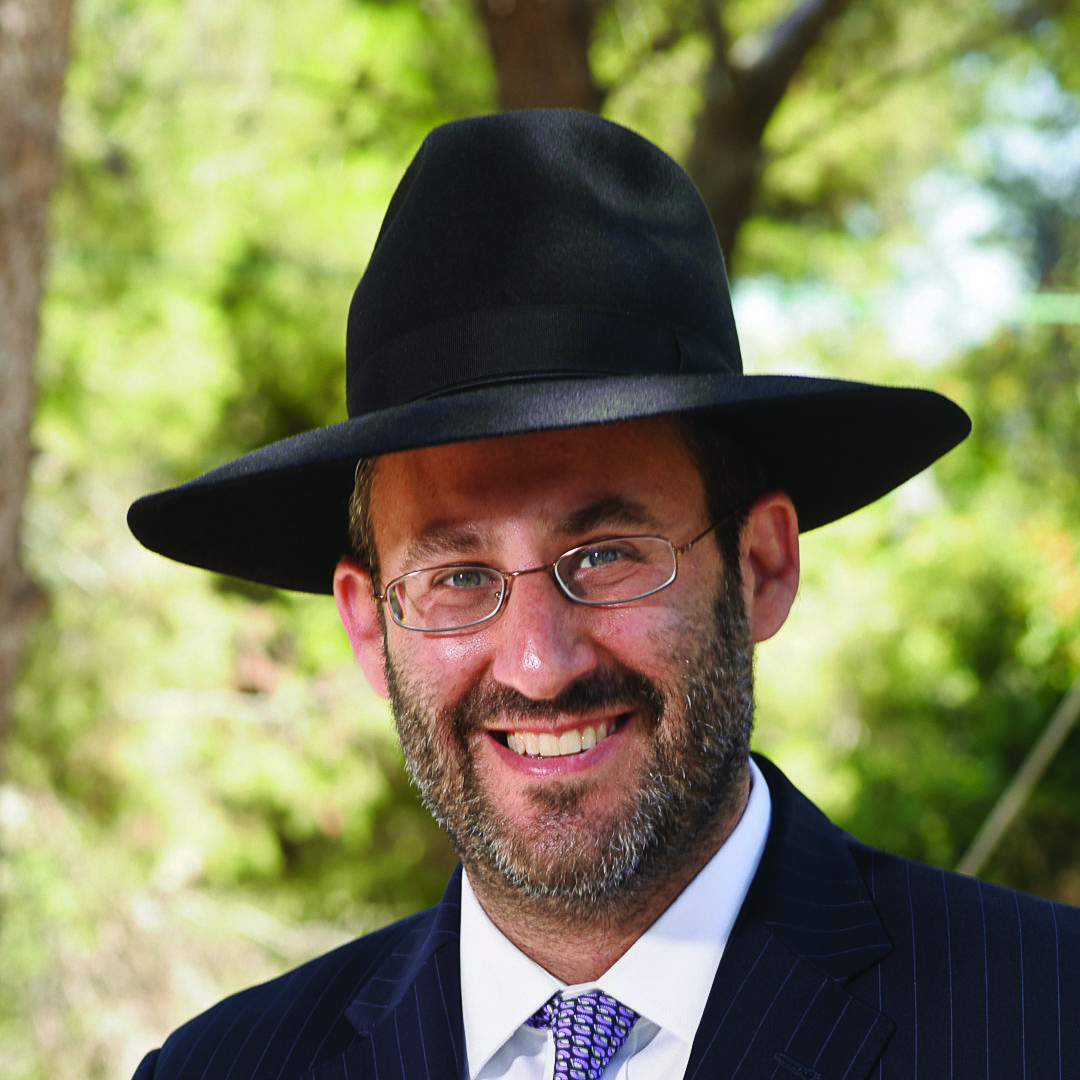Hole in One


F
ed up with his congregation the rabbi decides to skip Yom Kippur davening and instead play golf. Angels looking down were shocked to see the rabbi on the golf course and suggested that Hashem punish him.
Instead they watched in horror as the rabbi played the best round of golf of his life. The rabbi got a hole in one on the toughest hole on the course and then again on the next hole.
They turned to Hashem and asked “I thought You were going to punish him. Do You call this punishment?”
God replied “Who can he tell?”
This famous joke is one of my favorites because it highlights the importance of being able to share good news with acquaintances friends and relatives. Being unable to share an event mitigates the joy of making the most difficult shot in golf.
My daughter Anaelle was born ten years ago this week. She was born just 14 months after the birth of our bechor who has Down syndrome. Suffice it to say the birth of a typical child was monumental news for us. The thing was she was born at 12:30 a.m. on Friday night in Jerusalem. Before Shabbos I had made arrangements to sleep in Bayit Vegan not too far from Shaare Zedek Hospital.
I still recall walking home late that night through the quiet streets of Jerusalem. I was so excited and so relieved but it was odd that there was absolutely nobody to share the news with. When I arrived at the home of my host it was also completely quiet. Everyone had gone to sleep and I’d have to wait until the morning to share the great news.
A few hours later I attended a nearby minyan where I didn’t know anybody. I think I managed to get an aliyah but it was strange to be alone in such a happy moment. I quickly rushed back to the hospital and enjoyed the rest of Shabbos with my wife and newborn daughter.
I recently shared with my daughter the experience of “holding the news” about her birth for 24 hours before sharing it with family. After taking a moment to absorb what I was saying she began to cry. Was this delay of sharing the news of her birth ten years earlier something to be so sad about? I think Anaelle appreciated in a profound way the importance of being able to share our joys and triumphs with others.
In our frenetic fast-paced world good or bad news is usually disseminated within minutes if not seconds. I know that after the birth of our most recent child a few months ago pictures were in the hands of many relatives and friends within ten minutes.
This experience of having a new baby boy reminded us how significant the power of community truly is. People made prodigious efforts to attend both the shalom zachor and the bris. Some travelled great distances. Many others sent warm wishes and gifts. Our nuclear family was elated and the older kids super excited but there is an added dimension when others share in the festivities.
A chevrah of yeshivah bochurim even showed up at our door at 12:30 a.m. for the shalom zachor. I came out of the bedroom to entertain and schmooze with them. Though a tad surprised by their late arrival I was more than happy to get up and sing and schmooze some more.
My mother has modeled for me how important it is to make every effort to attend a simchah. She takes pride in attending as many events as she can even of more distant relatives. She has often remarked “I would do it for a shivah call or a levayah so why shouldn’t I do it for a simchah?”
We live in times where a myriad of social obligations communal dinners fundraisers and simchahs make it almost impossible to ever get anything done and certainly to be serious about designating time for learning Torah. Obviously we have to prioritize and make time for family and Torah learning. Yet we still need to keep in mind that our presence at a simchah can truly bring joy. It is easy to skip events and to convince ourselves that we won’t be missed.
Certainly on cold winter Friday nights or late summer Friday nights it can be difficult to push ourselves to attend a shalom zachor. And does Hashem really want me to drive hours to wish a quick mazel tov at a l’chayim or show my face at a bris when the main event is done in five minutes and then everyone rushes out to work?
It isn’t my place to place a value on anybody’s time and people should discuss with their rav how to balance all their obligations. But I will note that the extra effort can make a huge difference and bring great joy to others.
I was in shul last week when a person invited me to his simchah. In truth we are just acquaintances barely connected but he seemed to genuinely want me to come. I reflected on the joy and support I had recently received at my simchah and decided to reciprocate.
I would compare this to the dichotomy pointed out by Rav Joseph B. Soloveitchik ztz”l regarding tefillah. On one hand we have the quiet Amidah which is an individual prayer albeit one recited together with the congregation. On the other hand we also have the chazaras hashatz which is a prayer on behalf of the community and an expression of the unified whole which he suggests is a higher level of prayer when it is offered on behalf of the entire congregation as one.
Similarly man is advised by the Torah to marry because it is not good for him to be alone. Hashem fashioned a wife for Adam to cure his loneliness and allow him to build a family. The warm communal embrace and care from others reminds us that we are part of something bigger than ourselves. It strengthens us as we move forward and reenter the humdrum of daily life after a joyful milestone or occasion.
Life is complicated and difficult. We live in frightening times with terror attacks raging across the globe and most painfully in ourHoly Land. When there is a terrible attack or an accidental tragedy or the petirah of a gadol everybody goes. After such an event we feel the loss to the entire Klal and we keenly sense the magnitude of the misfortune and the family’s need for global support. This outpouring of concern is an outgrowth of our connection to our fellow Jew our “areivus”; we all feel the pain acutely and are compelled to participate. I have recently heard from both Racheli Fraenkel and Rabbanit Henkin what a difference this support has made for them in mourning the horrific loss of their sons.
Similarly I’m humbly suggesting that we would all benefit from pushing a bit harder to rejoice on happy occasions with our fellow Yidden. “Hachaim zeh lo picnic” — loosely translated that means that we live in trying times. Let’s uplift people around us as much as possible in the good times as well as in the difficult. Simchah breeds more simchah and chizuk breeds additional chizuk. If we recognize that there is a net gain for Klal Yisrael whenever we celebrate a simchah we may be more motivated to attend.
There is a famous conundrum: If a tree falls in the forest and no one is there does it still make a sound? I think it probably does but since nobody is there to confirm it the sound is hollow. Even without communal support there is still immense joy during a simchah but the outside confirmation is what concretizes and secures the reality on an entirely different level. In these difficult times let us seize the opportunity and rejoice with others whenever we can.
Rabbi Dovid M. Cohen works at the Orthodox Union (OU) as Director of Synagogues for New York and Director of Community Engagement for Yachad. His new book We’re Almost There — Living with Patience Perseverance and Purpose is available in Jewish bookstores and on his website at www.rabbidovidmcohen.com.
Oops! We could not locate your form.






